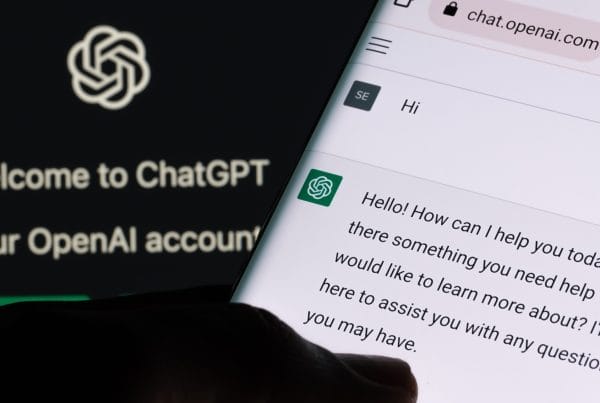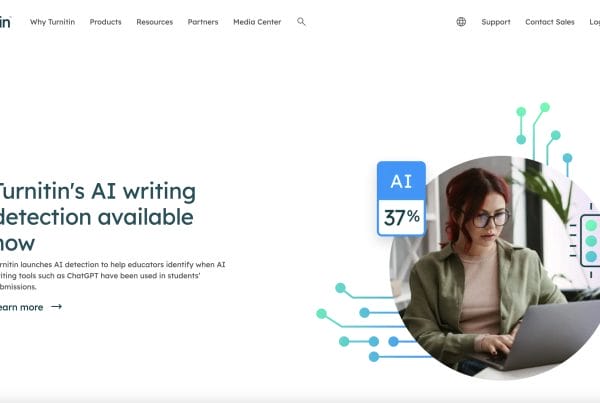Most people are now using AI tools like ChatGPT as they can be a real time-saver when working on academic projects.
AI tools like Grammarly and Quillbot do not count as plagiarism (most of the time) but what about referencing AI tools in your essays/assignments?
Well, let’s find out, shall we?
So, Should you Cite AI tools like ChatGPT?
You should cite AI tools in your work according to the style guide your institution uses. You should include how you used the tool (including the prompt and the functionality (paraphrasing, translating,editing etc) in the reference section of your work.
You shouldn’t cite AI tools as authors in your academic paper as citations of this kind are reserved for accredited authors. This is because any author should be potentially held accountable for their work and an AI tool cannot be held accountable.
This brings up the usefulness of AI tools for academic work. You can’t really include text that was generated by ChatGPT as it can’t be credited and your work also be flagged as plagiarism. (You can also check for plagiarism here)
AI tools can be useful for research and understanding difficult concepts. You can use an AI search engine like Perplexity AI to help you research a topic or Google Gemini to help you learn more about a topic.
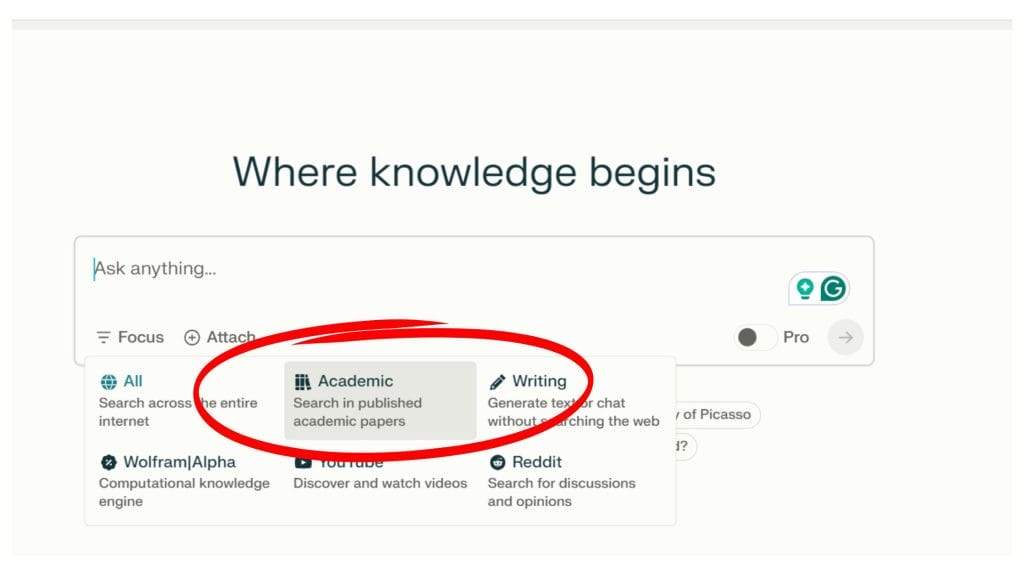
Should you cite ChatGPT according to the APA style guide?
The APA style team have given some direction on how to cite ChatGPT according to their style guide.
According to APA, quoting a text generated by an algorithm should be cited by the company that created the algorithm (in this case Open AI).
Here is an example they give to show you how you should cite ChatGPT if you are using the APA style guide:
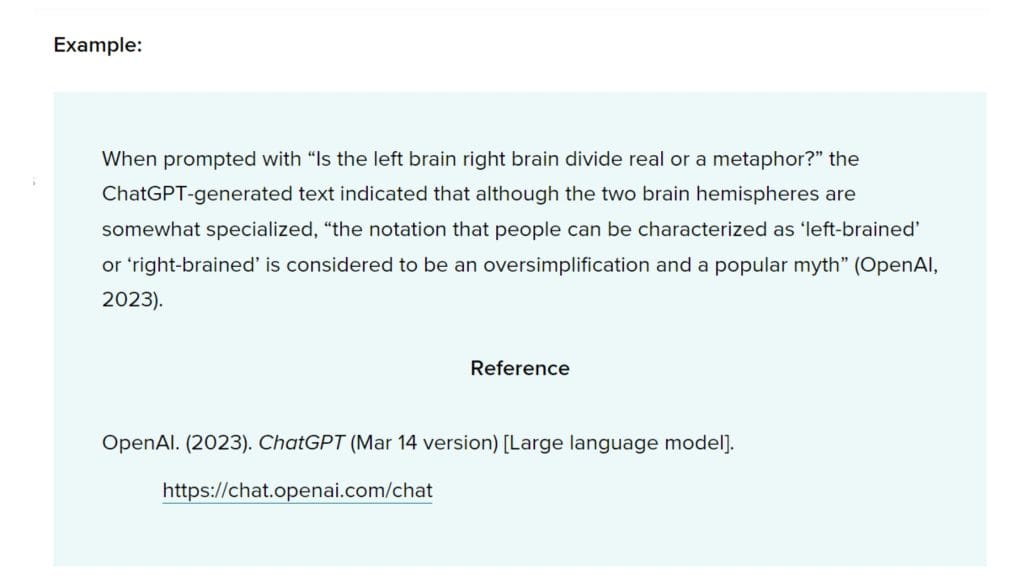
They also recommend putting the full responses given by ChatGPT in your appendix.
They also recognise the need for an open debate on whether or not you should be allowed to cite an AI tool like ChatGPT.
One of the main problems is that AI tools often “hallucinate”. This means that they confidently state something that may not be true. While people often make mistakes too, we can ask them why they came to such a conclusion. With an AI tool, they often use an incorrect or simply invented link as a reference.
Should you cite ChatGPT according to the MLA style guide?
According to the MLA style guide, you should cite AI tools like ChatGPT in your work.
The MLA style guide is supposed to be flexible when using citations but here is an example of how you should cite ChatGPT according to their website:
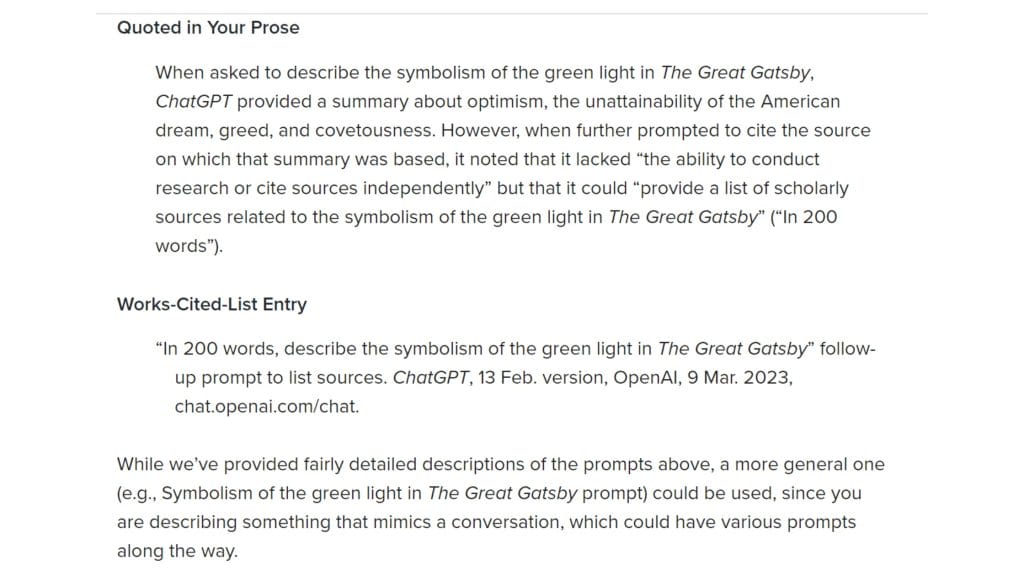
Here is an example of when you use ChatGPT for research purposes and use the information in your work:
“Describe the symbolism of the green light in the book The Great Gatsby by F. Scott Fitzgerald” prompt. ChatGPT, 13 Feb. version, OpenAI, 8 Mar. 2023, chat.openai.com/chat.
ChatGPT chats are now shareable so you should use the button on the top right-hand corner to cite the exact chat that you used in your research.
How to check if a text was written with AI
Many schools and Universities are now dealing with the impact of AI tools like ChatGPT on academic work.
The fact that an AI tool can write a whole essay from a single prompt changes everything.
If you want to know if a piece of text was written by a person or an AI tool, then you should consider the following:
- Testing the text with an AI-detecting tool
- Comparing the text with the student’s previous work
- Looking out for patterns in text that AI usually produces (eg Low variation in sentence length or vocabulary present)
As you can see from my writing above, some paragraphs are long and some are short. I use a variety of language from informal to more formal. AI tools tend to use more homogeneous words as they are trained to predict the most common output.
Do not accuse a student of using an AI tool without sufficient evidence or talking to your education board.
Our tool Winston AI has a 99.98% accuracy rate when detecting AI content.
Our tool is easy to use. All you need to do is copy your text into our app and scan it(takes about 3 seconds)
You can try it out for 7 days free here.
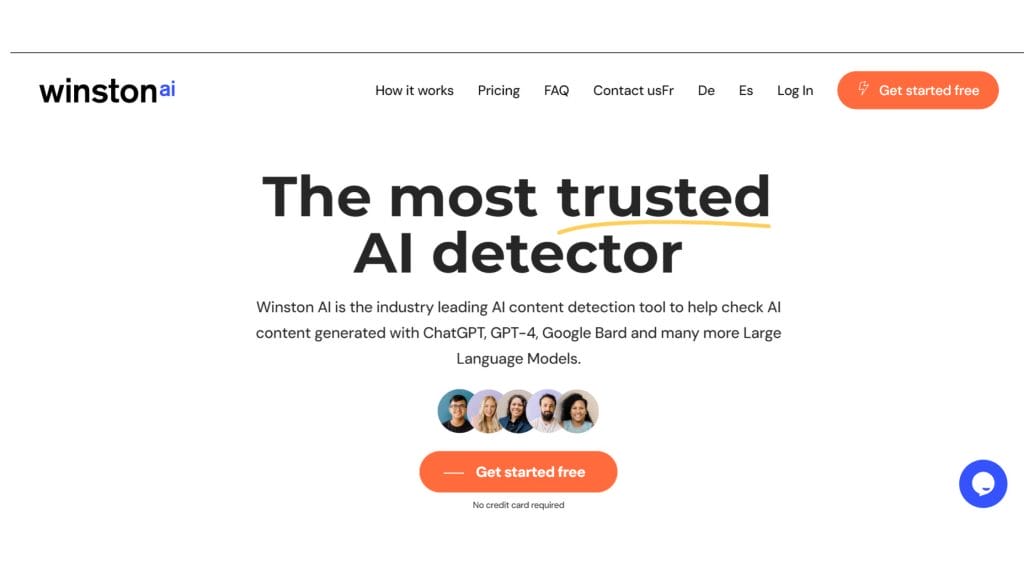
What are the most important things to consider when using an AI tool like ChatGPT when writing academic papers?
Some of the problems that using ChatGPT when writing academic papers include:
Authorship
As AI tools use a variety of sources to compile their information, it is impossible to find one author for a given text. This makes it more difficult for us to debate the truthfulness of something if we don’t have an accurate starting point.
Reliability and Traceability
Early AI tools were notoriously unreliable and one of the main problems with them is that they lack critical thinking and the ability to doubt. They often present information as facts when there can be nuance or subjectivity involved.
Another problem that is true for AI in general is traceability. While we know how AI works theoretically, we often don’t know how AI comes to conclusions or find the steps it takes to learn a specific piece of data. This obviously becomes a problem, the more complex our AI models become.
Different Institutions, Different Policy
The debate about whether you should be allowed to use an AI tool in education is likely to rage on forever. Most academic institutions are likely to treat AI tools in the same way they treat Wikipedia or other online forums such as Reddit or Quora. These websites are not trusted sources of information as most of the information there is user-generated and subjective.
Different institutions are likely going to have different policies and accept different tools/models. This entails more and more complexity around referencing AI tools as technology develops (and it is developing fast!)


